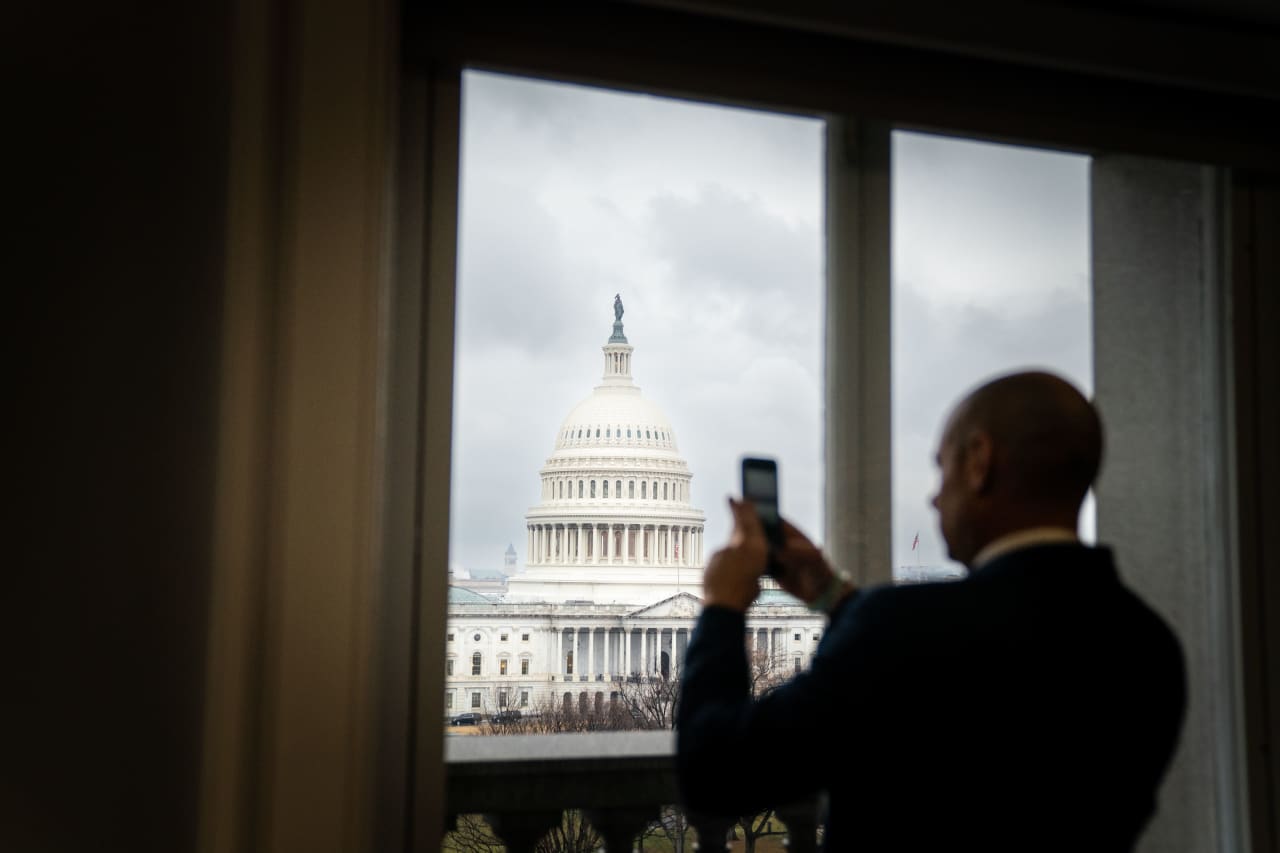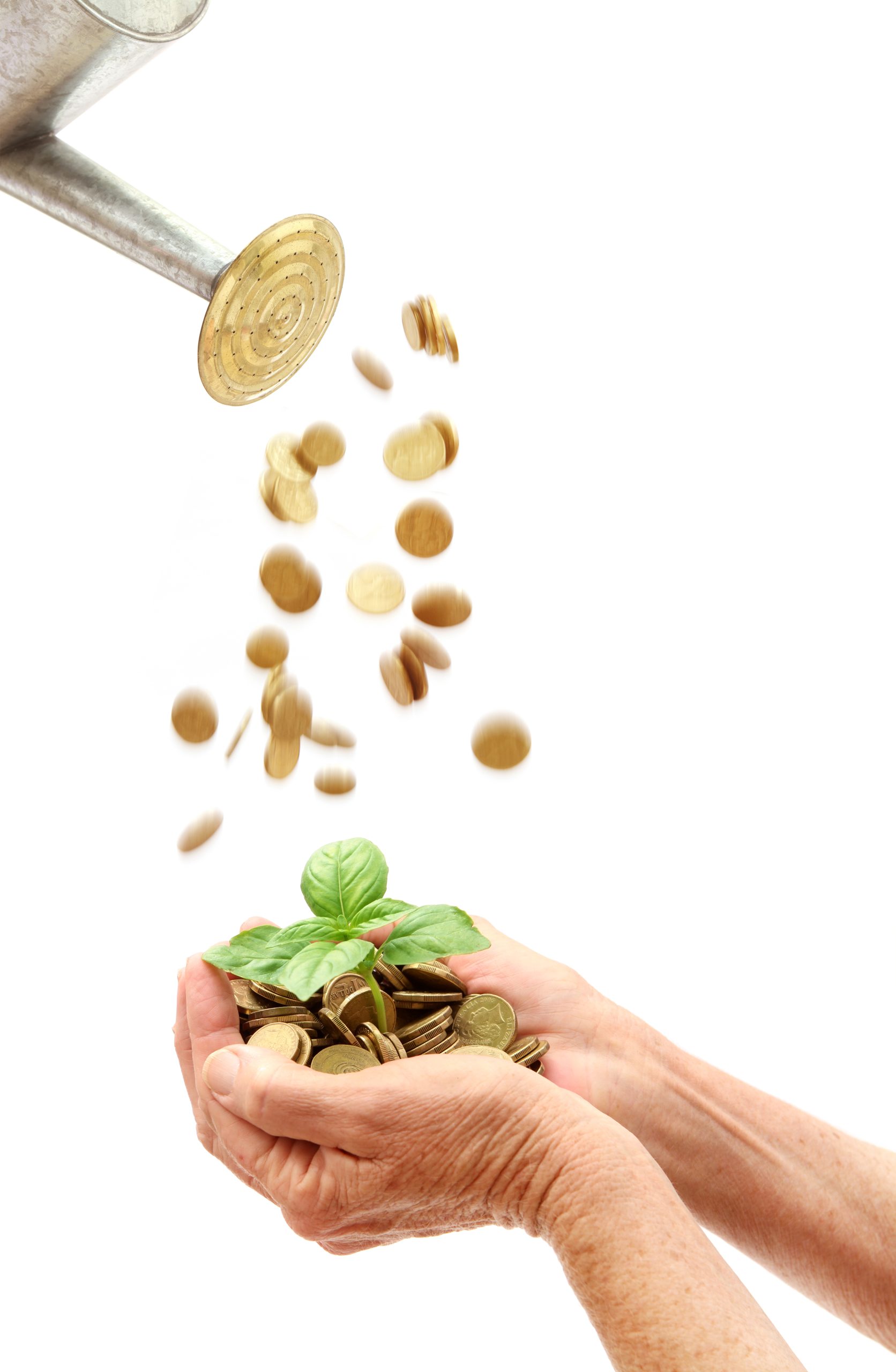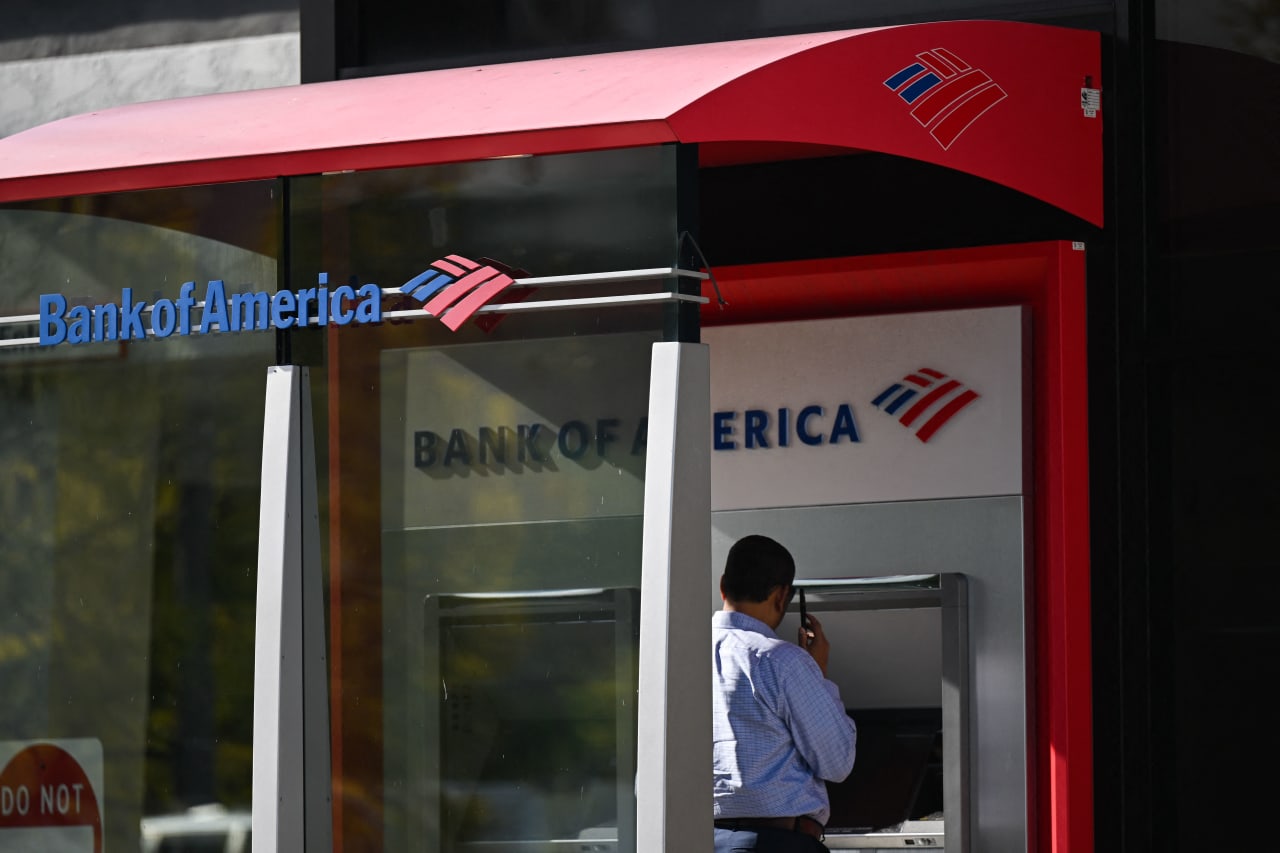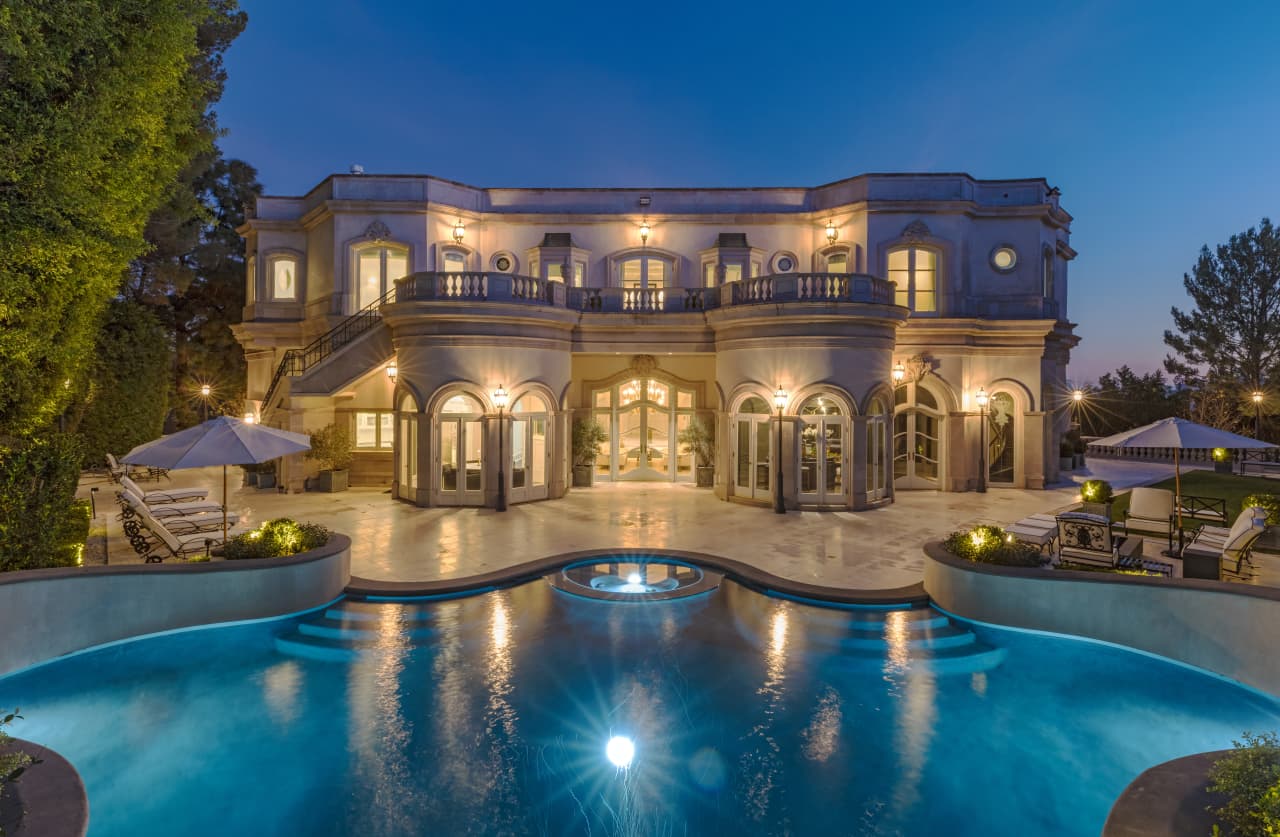TikTok Backlash as Congress Heads for Vote to Force Sale
TikTok urged its users to call Congress and lawmakers to drop a bill that could ban the popular video-sharing app in the U.S., and those users listened.
But the plan backfired. Instead of dropping the bill, which was introduced just two days ago, the House Energy and Commerce Committee approved it in a 50-0 vote Thursday afternoon. House Majority Leader Steve Scalise said he’s bringing it to a floor vote.
That was after beleaguered house staffers across the Capitol grounds endured hours of office phones ringing off the hook in an all-out push from TikTok users.
While TikTok the company has criticised efforts to ban it or crack down on it, this week’s legislative move prompted the social media company to appeal directly to users.
“TikTok is at risk of being shut down in the U.S. Call your representative now,” the app told its users when they logged into their accounts.
The app asked users to enter their ZIP codes and then directed them to their local congressional representatives.
TikTok was responding to a measure proposed Tuesday by Reps. Mike Gallagher (R, Wisc.) and Raja Krishnamoorthi (D, Ill.), co-chairs of the House Select Committee on the Chinese Communist Party, that claims TikTok “poses a grave threat to U.S. national security.”
TikTok, based in Singapore, is owned by China-based ByteDance, and that’s what lawmakers object to. The measure focuses on “foreign adversary controlled applications.” It would require ByteDance to divest of TikTok about five months after the law is passed, or risk being removed from app stores in the U.S.
That would make it illegal to distribute TikTok through any U.S. app store or from any U.S. web-hosting platform. TikTok says that is effectively a ban of the platform.
A TikTok spokesperson told Barron’s that “This legislation has a predetermined outcome: a total ban of TikTok in the United States.”
“The government is attempting to strip 170 million Americans of their Constitutional right to free expression,” spokesperson Alex Haurek said. “This will damage millions of businesses, deny artists an audience, and destroy the livelihoods of countless creators across the country.”
TikTok CEO Shou Zi Chew and others have repeatedly insisted that ByteDance and TikTok aren’t controlled by the Chinese government or Chinese Communist Party, and that U.S. user data is stored securely in Singapore and the U.S.
Krishnamoorthi said on X that TikTok has “launched a massive propaganda campaign, requiring users to call their representatives, and falsely labelling our legislation a ‘total ban’ of TikTok.”
“Phones are completely bogged down hearing from students, young adults, adults, and business owners who are all concerned at the option of losing their access to the platform,” a Republican aide told Axios.
The National Security Council has called the bill “an important and welcome step” to addressing risks to sensitive U.S. data, and the White House has said that if Congress passes it, President Joe Biden would sign it.
 Copyright 2020, Dow Jones & Company, Inc. All Rights Reserved Worldwide. LEARN MORE
Copyright 2020, Dow Jones & Company, Inc. All Rights Reserved Worldwide. LEARN MORE
This stylish family home combines a classic palette and finishes with a flexible floorplan
Just 55 minutes from Sydney, make this your creative getaway located in the majestic Hawkesbury region.
Impact investing is becoming more mainstream as larger, institutional asset owners drive more money into the sector, according to the nonprofit Global Impact Investing Network in New York.
In the GIIN’s State of the Market 2024 report, published late last month, researchers found that assets allocated to impact-investing strategies by repeat survey responders grew by a compound annual growth rate (CAGR) of 14% over the last five years.
These 71 responders to both the 2019 and 2024 surveys saw their total impact assets under management grow to US$249 billion this year from US$129 billion five years ago.
Medium- and large-size investors were largely responsible for the strong impact returns: Medium-size investors posted a median CAGR of 11% a year over the five-year period, and large-size investors posted a median CAGR of 14% a year.
Interestingly, the CAGR of assets held by small investors dropped by a median of 14% a year.
“When we drill down behind the compound annual growth of the assets that are being allocated to impact investing, it’s largely those larger investors that are actually driving it,” says Dean Hand, the GIIN’s chief research officer.
Overall, the GIIN surveyed 305 investors with a combined US$490 billion under management from 39 countries. Nearly three-quarters of the responders were investment managers, while 10% were foundations, and 3% were family offices. Development finance institutions, institutional asset owners, and companies represented most of the rest.
The majority of impact strategies are executed through private-equity, but public debt and equity have been the fastest-growing asset classes over the past five years, the report said. Public debt is growing at a CAGR of 32%, and public equity is growing at a CAGR of 19%. That compares to a CAGR of 17% for private equity and 7% for private debt.
According to the GIIN, the rise in public impact assets is being driven by larger investors, likely institutions.
Private equity has traditionally served as an ideal way to execute impact strategies, as it allows investors to select vehicles specifically designed to create a positive social or environmental impact by, for example, providing loans to smallholder farmers in Africa or by supporting fledging renewable energy technologies.
Future Returns: Preqin expects managers to rely on family offices, private banks, and individual investors for growth in the next six years
But today, institutional investors are looking across their portfolios—encompassing both private and public assets—to achieve their impact goals.
“Institutional asset owners are saying, ‘In the interests of our ultimate beneficiaries, we probably need to start driving these strategies across our assets,’” Hand says. Instead of carving out a dedicated impact strategy, these investors are taking “a holistic portfolio approach.”
An institutional manager may want to address issues such as climate change, healthcare costs, and local economic growth so it can support a better quality of life for its beneficiaries.
To achieve these goals, the manager could invest across a range of private debt, private equity, and real estate.
But the public markets offer opportunities, too. Using public debt, a manager could, for example, invest in green bonds, regional bank bonds, or healthcare social bonds. In public equity, it could invest in green-power storage technologies, minority-focused real-estate trusts, and in pharmaceutical and medical-care company stocks with the aim of influencing them to lower the costs of care, according to an example the GIIN lays out in a separate report on institutional strategies.
Influencing companies to act in the best interests of society and the environment is increasingly being done through such shareholder advocacy, either directly through ownership in individual stocks or through fund vehicles.
“They’re trying to move their portfolio companies to actually solving some of the challenges that exist,” Hand says.
Although the rate of growth in public strategies for impact is brisk, among survey respondents investments in public debt totaled only 12% of assets and just 7% in public equity. Private equity, however, grabs 43% of these investors’ assets.
Within private equity, Hand also discerns more evidence of maturity in the impact sector. That’s because more impact-oriented asset owners invest in mature and growth-stage companies, which are favored by larger asset owners that have more substantial assets to put to work.
The GIIN State of the Market report also found that impact asset owners are largely happy with both the financial performance and impact results of their holdings.
About three-quarters of those surveyed were seeking risk-adjusted, market-rate returns, although foundations were an exception as 68% sought below-market returns, the report said. Overall, 86% reported their investments were performing in line or above their expectations—even when their targets were not met—and 90% said the same for their impact returns.
Private-equity posted the strongest results, returning 17% on average, although that was less than the 19% targeted return. By contrast, public equity returned 11%, above a 10% target.
The fact some asset classes over performed and others underperformed, shows that “normal economic forces are at play in the market,” Hand says.
Although investors are satisfied with their impact performance, they are still dealing with a fragmented approach for measuring it, the report said. “Despite this, over two-thirds of investors are incorporating impact criteria into their investment governance documents, signalling a significant shift toward formalising impact considerations in decision-making processes,” it said.
Also, more investors are getting third-party verification of their results, which strengthens their accountability in the market.
“The satisfaction with performance is nice to see,” Hand says. “But we do need to see more about what’s happening in terms of investors being able to actually track both the impact performance in real terms as well as the financial performance in real terms.”
This stylish family home combines a classic palette and finishes with a flexible floorplan
Just 55 minutes from Sydney, make this your creative getaway located in the majestic Hawkesbury region.






















